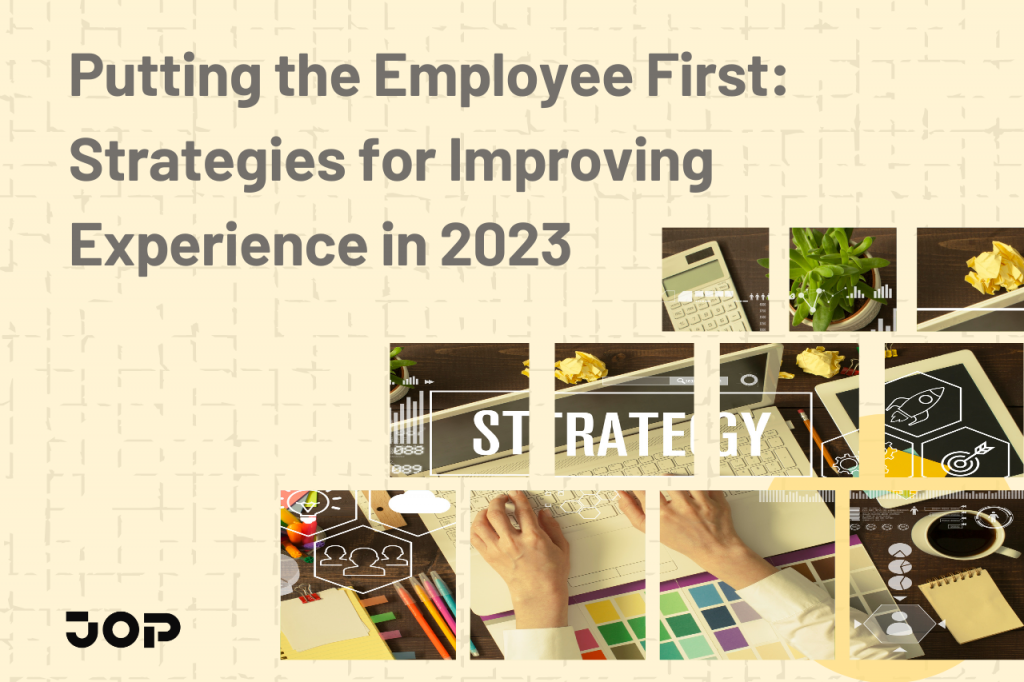Our modern work environment brings daily obstacles and promising prospects for progress for businesses and individuals. The aftermath of COVID-19, the transition to remote work, and the Great Resignation all flipped the global workplace upside down, affecting employee experience massively. On the other hand, these events produced an ideal climate for the constructive development of businesses.
As organizational leaders and managers look ahead to 2023, they should prioritize diversity, equality, and inclusion (DEI), prepare for HR digitization, and close skills shortages, particularly at the leadership level. However, one topic, in particular, sticks out as one that should be the focus of leaders everywhere in 2023: broadening the employee experience conversation.

What constitutes a positive employee experience? It is more than those office perks, such as a completely stocked kitchen with unlimited coffee and soda water alternatives. Individual demands of the employees may dictate the response. Still, ultimately, an employee experience should be positive and strong – and human, allowing people to bring more of their complete selves to work.
Employee experience refers to every experience an employee has while working with an organization, from the highs to the lows. It refers to your employees’ impression of how much of their expectations have been matched by the organization, notably in the most important moments. So, let us look at the best ways to improve employee experience in your organization in 2023.
Improving Employee Experience
-
Align employees with organizational values.
Employees want more than just a good wage. The employees of today prefer organizations that give them great employee experience. They want to understand the value of their work and contributions. Your organizational values are more than words in your workforce handbook; they motivate personnel to achieve the firm’s objectives.
Employees aligned with the organization’s values experience a sense of unity and are motivated to work harder. The organization’s mission and vision make them feel that their contribution is highly significant to the organization. This is why, no matter what, you should always make your employees understand the value of their work and how their contribution adds to the bigger picture.
-
Strengthen the connection between employees
Approximately 4 million individuals left their jobs last year. While many variables contributed to the Great Resignation, one major motivator was a lack of connection. While in-person work was far from flawless, it was excellent for cultivating friendship, teamwork, and culture.
If your organization never looked back after going entirely remote, you know how difficult it is to replicate this over video conversations and instant chat. But that doesn’t mean that strengthening team bonds should be neglected. It’s critical to look beyond having fun when confronting this. Sure, an enjoyable work atmosphere usually leads to a favorable one, but there’s a lot more to it than that.
-
Encourage employee well-being and work-life balance
Employees want their organizations to prioritize their needs, whether it means reducing hours or improving employee perks, as more companies embrace employee happiness techniques. Flexible benefits are essential in this situation.
Many employees are no longer content with working greater hours for a larger paycheck. Employees desire to advance in their careers without sacrificing their personal lives, families, leisure time, or mental health. Many businesses have embraced the flexible work schedule concept, allowing remote workers to complete tasks when it is most convenient for them.
-
Take feedback consistently
You should have a culture where your employees regularly ask for their valuable feedback. You can use surveys, questionnaires, or one-on-one meetings, to ask your workforce for their feedback. Apart from asking for their feedback about the organization, the manager, and their work life, you can also ask them if they have any suggestions or ideas for increasing sales, improving customer satisfaction, or improving performance, among other things.
Senior management isn’t the only one with brilliant ideas! Involving all of your workforces and providing them with a platform where they can voice their concerns or ideas will make them aware of the fact that their management values them so much that they care about their ideas, concerns, and challenges with utmost importance.
-
Provide opportunities for career growth and development
Workers now desire more job advancement and the training to get there. Simply keeping their head down isn’t enough. Furthermore, an increase in income does not always result in improved engagement or work experiences. Ensure your staff understands how they succeed in the organization and their current roles.
This is the era where employees regard career growth opportunities as one of their biggest drivers of engagement. Adding to this, the absence of growth prospects is one of the top reasons employees leave their organizations. Even though this was a point of consideration previously, in the year 2023, it will only become all the more important. So, make sure your business strategy has a part where your organization takes care of the professional development of your employees.
As you must’ve realized, organizations will go really big on the employee experience in 2023. So, what is it that you are waiting for? Get on a consultation call with the experts now!
FAQs
What is employee experience, and why is it important?
Employee experience refers to employees’ overall perception and satisfaction with their work and the organization they work for. It encompasses various aspects, such as the physical and digital environment, culture, leadership, and opportunities for growth and development. Improving employee experience can increase engagement, productivity, and retention and positively impact the organization’s overall success.
How can an organization improve the employee experience?
There are several ways an organization can improve employee experience – Providing a positive and supportive work environment, offering competitive compensation and benefits, fostering a culture of inclusivity and diversity, and encouraging employee input and participation in decision-making.

Gaurav Sabharwal
CEO of JOP
Gaurav is the CEO of JOP (Joy of Performing), an OKR and high-performance enabling platform. With almost two decades of experience in building businesses, he knows what it takes to enable high performance within a team and engage them in the business. He supports organizations globally by becoming their growth partner and helping them build high-performing teams by tackling issues like lack of focus, unclear goals, unaligned teams, lack of funding, no continuous improvement framework, etc. He is a Certified OKR Coach and loves to share helpful resources and address common organizational challenges to help drive team performance. Read More
 Gaurav Sabharwal
Gaurav Sabharwal
